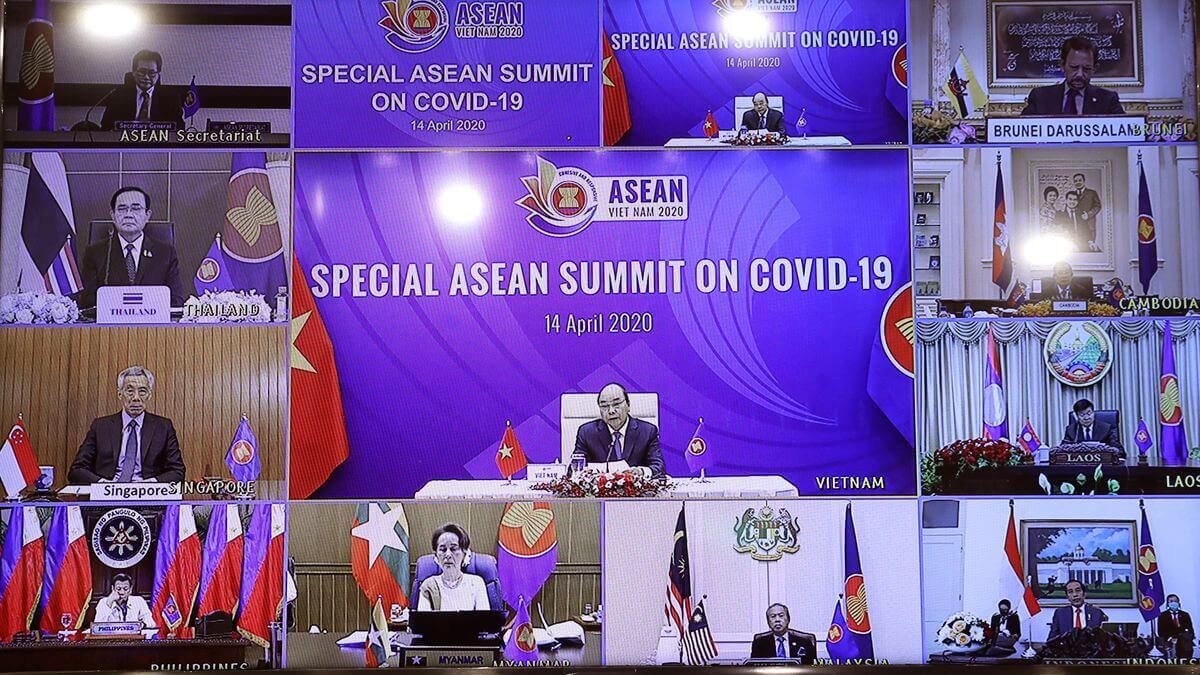On Tuesday, amidst the coronavirus pandemic, Southeast Asian leaders met via video conference to plot a strategy to overcome a crisis that has threatened their economies and led to millions being put under lockdown. The leaders assessed the crippling economic cost of the coronavirus and called for trade routes to reopen to protect jobs and food supplies, and allow for the stockpiling of medical equipment.
Led by Vietnam, which chaired the Association of Southeast Asian Nations (ASEAN) meeting, leaders agreed to share resources and fight to limit further damage to the region’s tourism and export-reliant economies. In a joint declaration, the leaders committed “to keeping ASEAN’s markets open for trade and investment... with a view to ensuring food security”.
They also pledged to cooperate to ensure adequate supplies of personal protective equipment (PPE) and diagnostic tools, as well as using “reserve warehouses to support the needs of ASEAN Member States in public health emergencies”.
Vietnamese Prime Minister Nguyen Xuan Phuc, in his opening remarks, hailed the efforts of ASEAN and member states in tackling the virus, stating, “It is in these grim hours that the solidarity of the ASEAN community shines like a beacon in the dark.” Vietnam also urged the creation of an emergency fund, a proposal that was supported by both Malaysia and the Philippines.
The 10 ASEAN leaders held further talks later in the day with their counterparts from China, Japan and South Korea, who expressed support in helping ASEAN fight the coronavirus. Following the summit, Chinese Premier Li Keqiang declared his support for a US$5 billion recovery package proposed by Beijing-backed Asian Infrastructure Investment Bank (AIIB). Japanese Prime Minister Shinzo Abe said Japan will help Southeast Asia fight the outbreak, and touted the establishment of an ASEAN centre for infectious diseases.
Image Source: KIRO 7
ASEAN+3 Leaders Hold Virtual Summit, Call for “Unprecedented Cooperation”
The leaders discussed reopening trade routes and aiding each other’s COVID-19 efforts.
April 16, 2020

